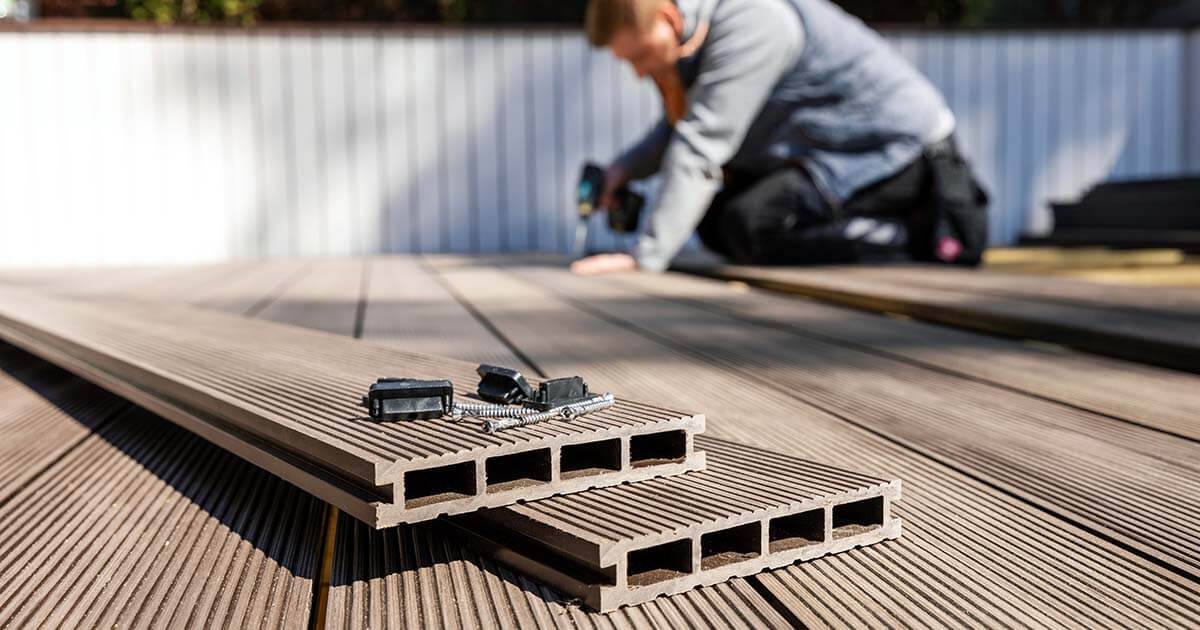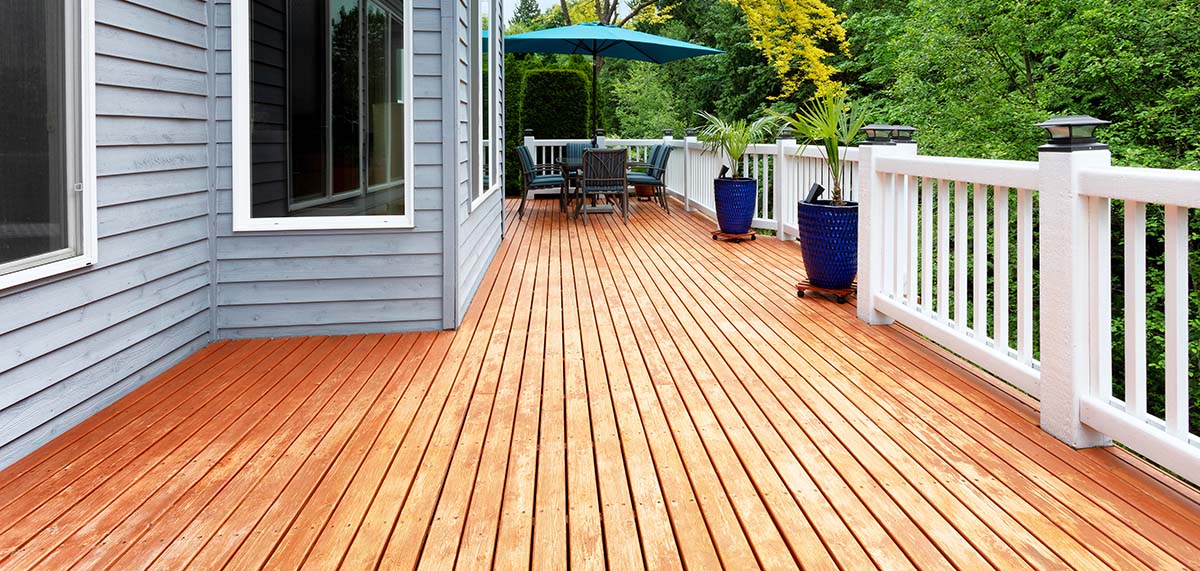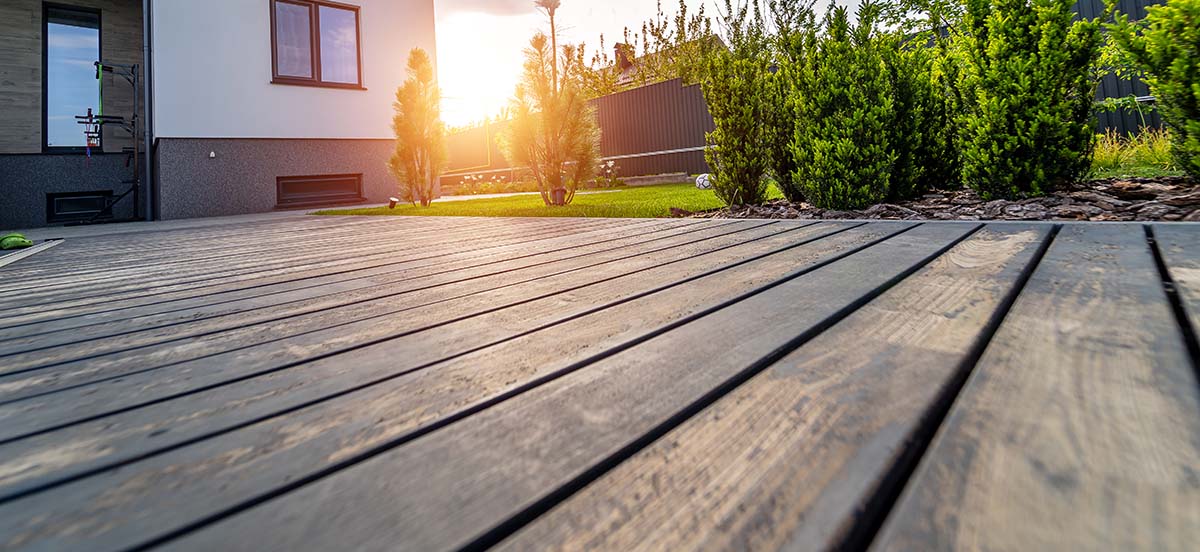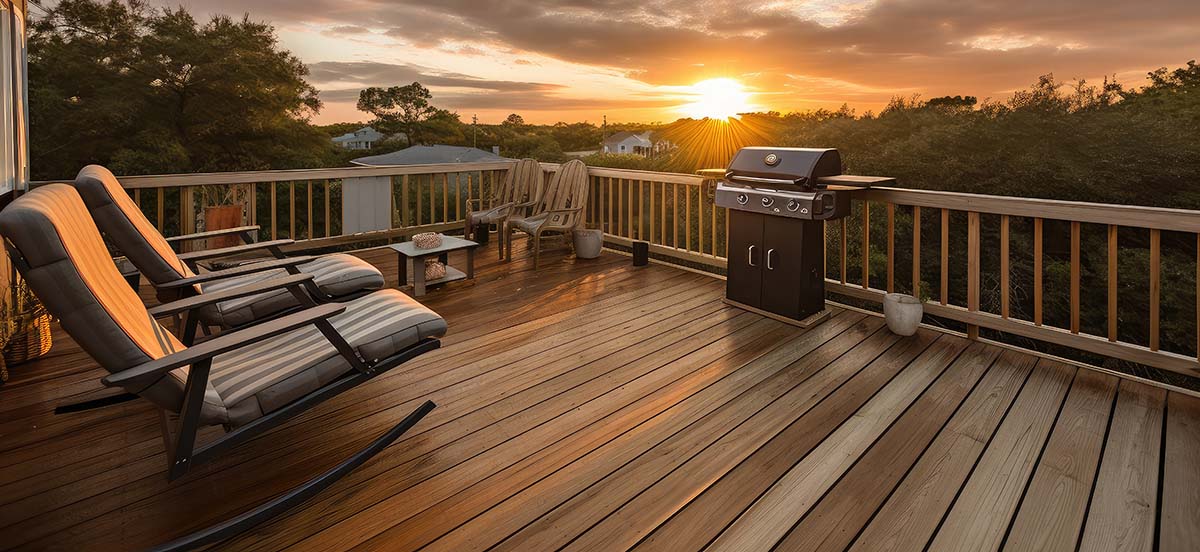
We collect basic website visitor information on this website and store it in cookies. We also utilize Google Analytics to track page view information to assist us in improving our website.
Spring Season starting to book up. Promotions Available for Winter.

Summer is just around the corner, which means it's a great time to start envisioning plans and exploring options for your custom deck project! While custom deck layouts and features often get the most attention in the early planning stages, deck building material selection is just as important! However, many homeowners aren't sure which decking materials will be best for them.
At Decks by Premier, we are experts in custom decks and have over 90 years of experience serving the Kitchener-Waterloo area. We've worked with thousands of homeowners and are happy to help you make an informed decision about the best decking materials for your next project!
Below, we highlight the top materials for building a custom outdoor deck, including the pros and cons of different deck materials. After familiarizing yourself with the various types of decking materials, you will feel more confident choosing the best materials for building a deck in your dream backyard! Continue reading for everything you need to know about custom deck building materials.
The most popular types of deck materials include:
Each of these decking materials is suitable for constructing custom decks that will last many years. However, each deck-building material has its own characteristics, appearance, and appeal, as well as pros and cons. Read the deck material overviews below to learn more!
Composite decking material is made from recycled plastics, wood fibres, and binding agents that allow deck builders to offer the look of natural wood. Composite decking is highly durable, weather-resistant, and slip-resistant. It does not rot, warp, or splinter and is less prone to insect damage and decay than lumber. Composite deck materials are available in a wide variety of textures, colours, and finishes. They also require limited maintenance and are a very cost-effective, high-quality option.
PVC decking materials (also known as vinyl decking materials) are synthetic materials made from polyvinyl chloride. While PVC decking often mimics natural wood for a more traditional look, this decking material is highly versatile and can be manufactured to create sleek, modern, and uniform look too. Like composite decking material, PVC decking is highly durable and resistant to decay, pests, fading, slips, mold, and mildew. It is also a low-maintenance decking material. However, PVC decking can be more costly than composite decking material and can become hot to the touch in direct sunlight.
Aluminum decking materials are – you guessed it - made of aluminum panels that are highly durable in any environment. Aluminum decking is very fire-resistant and can stand up against salty coastal conditions too. It does not rust or corrode, even when exposed to harsh weather, making it a very durable decking material. In addition, aluminum decking is lightweight, anti-slip, and highly recyclable. It provides a sleek look that complements modern architecture and is available in many colours, textures, and finishes. Aluminum decking is stunning and unique, though it does retain a lot of heat and can require a significant initial investment compared to more cost-effective options.

Cedar decking is a classic decking material choice due to its natural beauty, durability, resistance to decay, dimensional stability, and pleasant cedar aroma. With its light tan to reddish-brown hues and natural character, it is a popular material for wooden decks. Cedar wood is high in natural oils, which helps it remain durable and pest-resistant outdoors. While it generally requires less maintenance than other natural wood, cedar decking does need regular cleaning, sealing, and staining to optimize and maintain its appearance. Cedar remains cool even in direct sunlight and is a sustainable wood species. It is a top choice for custom wood decks in Canada because it is readily available.
When choosing the best materials for building a deck, there are many practical, aesthetic, financial, and values-based considerations to keep in mind as you explore your options. Which factors are most important to you will be based on your unique preferences and priorities, but the most common ones for most homeowners are:
Appearance and style of different decking materials
Cost comparison of different decking materials
The slip resistance of different decking materials
Ease of installation of different decking materials
Longevity and durability of different decking materials
Decking material warranties
Sustainably sourced decking materials
Using recycled materials for decking
Decking material fire resistance
Building codes for decking materials
Decking material availability
Decking material colour options
Decking material texture options
Resistance to weather and insects of different decking materials
Of course, your unique outdoor living space, budget, climate, style preferences, and the availability of materials from your local deck building company will likely be your most significant considerations. A deck builder near you can help answer any questions you may have in specific areas before you choose the best building materials for your custom deck.

If you are seeking a low-maintenance decking material, composite and PVC decking materials are likely your best bet. Both options are synthetic materials that do not rot, decay, warp, fade or require regular staining, painting, or finishing. In addition, they are very easy to clean, only requiring soap and water; a power washer makes very quick work of cleaning composite or PVC decking without damaging it.
As previously mentioned, composite and PVC decking materials are available in a wide variety of colours, textures, and finishes. So, if you love the look of natural wood but you have limited time or desire to keep up with regular maintenance of natural materials, PVC or composite decking may be the perfect fit for you!
More homeowners than ever before are factoring in the sustainability of their decking materials before deciding on the best decking materials for their custom deck projects. Many are seeking sustainably sourced decking materials like wood, while others value using recycled materials for decking. If you want to ensure you utilize environmentally friendly decking material, we recommend asking your local deck building company about composite decking materials and aluminum options.
Composite decking materials most often use recycled wood and recycled plastics from various sources. They are then held together with binding agents that support the strength and durability of the recycled wood fibres and plastics. In addition to using recycled materials, composite decking is highly durable – making it a lower-impact option that does not need to be replaced as often.
Another environmentally friendly decking material option is aluminum. Aluminum is infinitely recyclable, so it is very easy to dispose of. However, like composite decking materials, aluminum decking is extremely durable and will last indefinitely.
Resistance to weather and insects of different decking materials is another top consideration for most homeowners seeking to build a custom deck. This is because weather and pests are the two top threats to decking material longevity. Rain, snow, UV exposure, fluctuating temperatures, and insects can all significantly reduce the appearance and longevity of your investment. Therefore, it is important to select the best decking material for your area and take measures to protect your materials.
Our top pick for weather- and pest-resistant decking materials is composite or PVC due to their synthetic qualities and specific engineering that makes them more resistant to decay and damage. However, aluminum and cedar can also stand up to the elements – cedar and other wood decking materials just require more regular maintenance to keep them in top shape.

In conclusion, the top materials for building a custom deck are largely based on your unique space, needs, preferences, and lifestyle. However, the four top materials that are the most popular decking materials are composite decking materials, PVC decking materials, cedar decking materials, and aluminum decking materials. Each have their own pros and cons based on weather resistance, price, style versatility, pest resistance, availability, thermal properties, sustainability, and maintenance requirements.
Synthetic materials like composite decking and PVC decking are ideal choices if you are seeking a low-maintenance option that will last a long time with limited attention. Composite or aluminum decking materials are both great choices if sustainably sourced decking materials and environmentally friendly options are important to you. If weather and pest resistance are a top priority, composite, PVC, aluminum, and cedar will all work well, though cedar (like all-natural wood decking material) will require more regular maintenance.
Before you select a material for your custom deck, be sure to ask a deck building company near you about which decking materials will suit your space, budget, and vision best!
Are you ready to build a custom deck, or do you have questions about which decking material is best for your deck project? Then Decks by Premier is here to help! We are proud to have over 90 years of experience serving homeowners in the Kitchener-Waterloo, Cambridge, and surrounding areas.
Reach out to us to get started and speak to a sales representative today! We look forward to scheduling a no-obligation, on-site consultation at your convenience. Your home is our pleasure.

